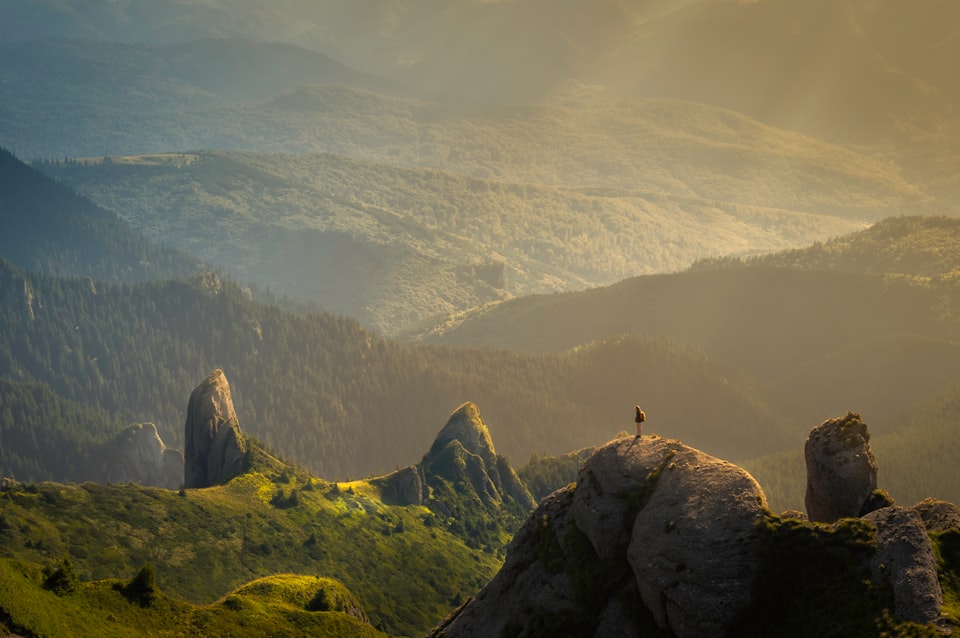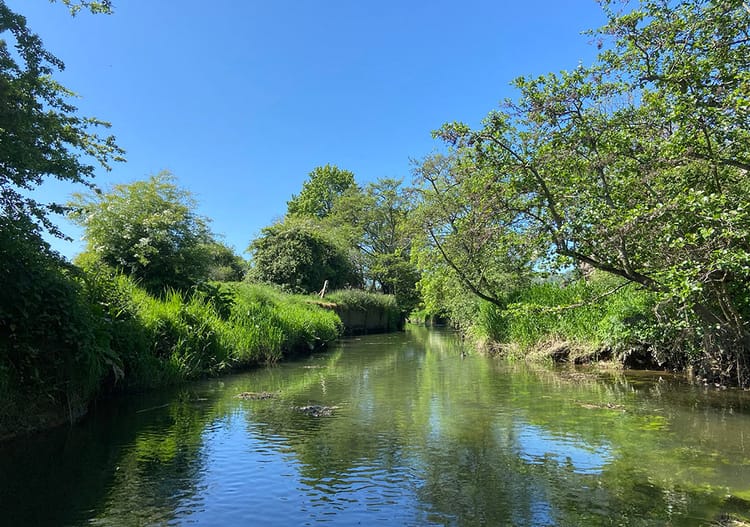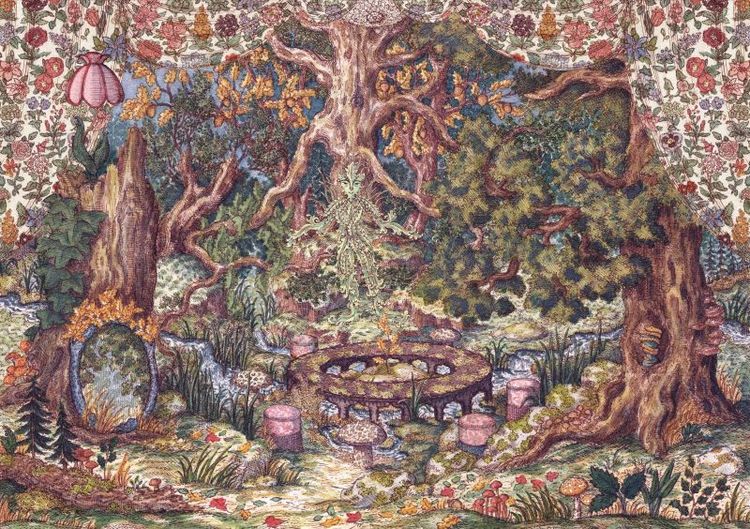Facing the Climate Crisis: A Journey from Denial to Active Hope (Part 1)

By Alice Brunton - also available on Medium
This post has taken some time to incubate, as I wanted to draw out what I found most helpful in my own journey. I’ve also been grappling with different stages in this process (or cycle) as I go. As a result it’s longer, so I’ll be posting it in three parts. I hope you find something useful or thought-provoking here.
With thanks to Joanna Macy and Chris Johnstone for providing much of the structure via their book Active Hope (more of which, see below).

Part 1: Breaking out of Denial or Stasis
I know that the urgent state of the climate crisis can seem too painful to fully contemplate. I’ve felt this for a while, and it comes in waves. Towards the end of last year we had the international climate conference of COP26, which gave some potential for progress.
But, unless you’re a delegate, you can feel powerless. I study environmental law (so in theory I understand this stuff), but the conflicting headlines made me feel confused about how much progress had actually been made. Tellingly, it was only by reading beyond the headlines, that I saw greater potential for Hope.

I also know that it’s tempting to continue everyday life, basically ignoring climate change. But if you have the luxury of being able to ignore it, then that is all the more reason to use your power to help us all move towards action. Once you begin to move from the paralysis of denial (or despair), to taking action, from my experience you gain a clearer purpose, and become more engaged in the world as a result. You also help others come along with you.
As you read this, I therefore invite you to consider which stage you’re at, and what steps you can take to move forward. It’ll be worth it…
1: Denial
Back in my City job a few years ago, the climate crisis was like an incessant background alarm that I was busy trying to ignore. I’d rather go to brunch in my precious free time than consider the acceleration of climate change. I was in the Denial stage that many of us in the Global North start from — not ‘climate denial’, more a lack of time or motivation to face the reality of the crisis. We have the privilege to continue like this, whilst many around the world face the effects of climate breakdown every day.

I also thought I couldn’t make a difference, or that it was too late to try, so what was the point? Luckily, as I pushed forward, I came to realise that neither of these assumptions is true, and that we should take action even if we’re scared that they are.
Let’s take stock a minute. Why do we as humans adopt any kind of denial? In their book Active Hope, which helped shape my own journey, ecophilosopher Joanna Macy and psychologist Chris Johnstone describe humans’ natural “stifling effect”. This can be a helpful instinct to avoid us dwelling on painful things, except when it comes to the global effects of climate change, where we really do need to sit up and take action! But as a result of this evolutionary instinct, many of us (in the Global North) are stuck, feeling powerless.

You may be in this stage right now; aware of the alarm, but feeling stuck. If you are, the main takeaway is that staying in this state can be more painful than facing reality, informing yourself, and pushing on through by taking action. Move forward. There is Hope on the other side.
How do you move forward?
2: Gratitude
Before moving on, in Active Hope, the authors recommend you start from a place of Gratitude. This is above all for reasons of:
(i) Motivation: Gratitude prompts us to consider our place in Nature, and “motivates us to act for the world”.
Try this exercise: what are you most grateful for — your family, friends, job, music, community? Write these down. Feeling gratitude gives you a general positive mental boost!

Then think about how they (we) all rely on the natural world. So that the people and things we love can continue to flourish, we must protect the ecosystems on which we all rely. Think about how you are grateful to Nature for our energy, food, resources, and also its inherent beauty and ability to uplift the soul. The skill you learn with practice is to use this as a positive motivator to action, rather than a paralysing thought; although there is a time to process climate grief too.

(ii) Resilience: regularly practising Gratitude promotes mental resilience
I now do the above thought exercise as regularly as possible. I recommend you try it, and bank some extra resilience in the tank for the next stages... Part 2 is on its way in the next 24 hours.
Subscribe to Lawyers for Nature & Join our Community
If you are on the website, enjoyed this blog and are yet to subscribe to the Lawyers for Nature newsletter, you can click the button at the bottom right hand corner of this page, or simply click here. You can also use our Contact Page if you would like to reach out directly, or simply join our Community Discord Server.
We look forward to working with you.




